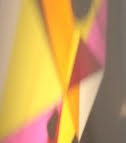tworkov on justness

"the spectator who in front of my paintings will ask, "what does it mean?" has forgone the chance of seeing it. for the only meaning in the painting is in the seeing of it. but that's true in looking at any painting. if you only see the landscape, you are not seeing the painting. if you only see the portrait, you miss the painting.
there is an element in painting which i have often referred to as true, by which i mean not truth in a moral sense but the concern similar to that of a good carpenter who supports his eye with the try square and level, on which all other qualities base themselves. the spiritual essence we draw from art is the absence of falseness; it teaches us not only about art but how to judge anything in life, from the clothes we wear to the food we eat, from what the preacher says to what the politician says and does. art can become the try square and the level of all things - provided it is itself not askew.
it is not beauty that is the first concern of art and certainly not entertainment - but justness.
where justness exists in a work, the artist's personality disappears because the painting is the presence, not the painter.
there is another quality in a painting that cannot be described : it is the residue reflected in the painting of the artist's pleasure in the making of it, especially the pleasure, the joy the artist experiences in the stages when the painting uncovers itself to his eyes. this is an internal experience of the artist which the attentive spectator can extract. it is something precious i get from a cezanne, knowing very well he did not make it for me, but it is there for me to have.
trueness and pleasure add up to the most fundamental quality in a painting. if the artist cannot paint himself out of a picture, if he is caught up in attention-getting devices, if he becomes concerned with the effects on the audience, he cannot achieve justness. you can admire his devices but you cannot live with them. you cannot draw joy from them. at their worst such artists exploit the same world as teh advertising fabricators: clever, ingenious, eye-grabbing, but false.
am i stressing an esthetic morality? i am. it's what i get from bach, velazquez, blake, cezanne, mondrian - and it is rare in our present.
am i too pessimistic? not altogether. when i think of the overwhelming numbers of painters, poets, dancers, composers, musicians working in this country and their audiences, i know there is an element that exists outside of the sphere of exploiting corporations, bureaucratic politicians, war manufacturers, radio preachers, soap advertisers; and there is just the possibility that when the sharp edge of crisis comes, they may form the core of an alternative way. for, by and large, the artists are the truth element in society; they are the least likely to use the flag and god falsely."
jack tworkov, 1981

1 Comments:
wow. a great quote, steve. thanks!
Post a Comment
<< Home